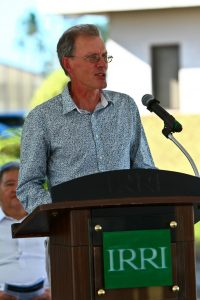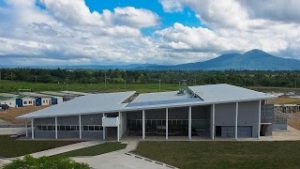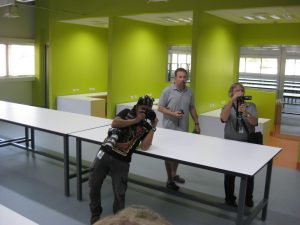- About
- Members
- Join
- Member log in
- Membership Renewal
- Member directory
- Life Members
- ASPS Life Member Professor Graham Farquhar
- ASPS Life Member Associate Professor Hendrik (Hank) Greenway
- ASPS Life Member Dr Marshall (Hal) D Hatch
- ASPS Life Member Dr Paul E Kriedmann
- ASPS Life Member Dr Mervyn Ludlow
- ASPS Life Member Emeritus Professor Rana Munns
- ASPS Life Member Conjoint Professor Christina E Offler
- ASPS Life Member Professor (Charles) Barry Osmond
- ASPS Life Member Emeritus Professor John W Patrick
- ASPS Life Member Dr Joe Wiskich
- Corresponding Members
- Elected Fellows
- Events
- Awards & Funding
- Employment
- Publications
- Research
- Teaching
- Menu
ASPS dinner at ComBio
28 August 2017
Dear ASPS member,
Are you coming to ComBio2017 in Adelaide this year?
Would you like to let your hair down after a long day at the conference with great food, and an incredible atmosphere at a reasonable price???
If it’s a yes to both those questions, tickets are now available for the ASP premier networking event at the ASPS dinner!
This year the dinner will be held on Wednesday the 4th of October at the stunning Adelaide Oval – just a short 4-minute walk from the Adelaide Convention Centre via the new bridge over the Torrens River. This will follow the mixer event in the conference poster hall.
Dinner includes 3 courses and an open bar with free soft and alcoholic drinks.
Thanks to sponsorship from the plant based ARC Centre of Excellence we can offer heavily subsidised prices for this event.
Ticket prices:
Students and ECR’s – $30
Academics – $50
Numbers are limited so please reserve your ticket ASAP.
As we need to know the numbers in advance of the event we will need your payment before COB Monday 25th September, which will need to occur via direct debit into the ASPS account.
Tickets can be reserved by emailing Samantha.McGaughey@adelaide.edu.au who will forward the payment details, and your reservation will be confirmed when we receive confirmation of your payment. When reserving your ticket please include any dietary requirements.
Look forward to seeing you there to celebrate our 59th year!
ASPS Dinner Organising Committee
June GPC Bulletin and conference added to ASPS events page
10 July 2017
A new conference has been added to the ASPS events page.
|
Call for 2019 ASPS meeting expressions of interest
19 June 2017
Dear ASPS members,
As you will likely be aware, the Sydney 2018 COMBIO will be last annual COMBIO meeting. It will now run as a combined meeting every 2-3 years instead.
ASPS therefore is seeking expressions of interest to hold a 2019 ASPS meeting. This could either be in a city that has traditionally held COMBIO or one that has not. The only criteria is that it is well organised and has costs that are far reduced from COMBIO meetings.
We would like to decide the venue at the next AGM to be held on Thursday 5th October at 2pm at the COMBIO meeting in Adelaide.
We are seeking a venue for approximately 150 people and hoping that costs can be kept to a minimum by using University facilities or similar.
We will leave the timing up to those wishing to host the meeting but out of term time would be good to maximise academic involvement. We envisage that it would be a two day meeting, and we would aim that ASPS and the meeting receipts would subsidize costs for two plenaries from overseas.
As we have a broad membership, in terms of subject content, it would be wise to have at least 2 concurrent streams.
If you are wanting to host the meeting please contact myself (matthew.gilliham@adelaide.edu.au) or our President, Sergey (sergey.shabala@utas.edu.au) to discuss further.
Thanks,
Matt
_________________
ARC Centre of Excellence in Plant Energy Biology
Deputy Head of School (Research)
School of Agriculture, Food and Wine
University of Adelaide
Ph: +61 8 8313 8145 | Twitter: @IonPlants
Lab website: Plant Transport and Signalling Lab
Honorary Secretary, Aust Soc Plant Scientists
Plant Oxygen Group Meeting notification and the last GPC E-Bulletin for 2016
10 January 2017
Your ASPS membership is paid to [wpmlfield name=”paidtodate”] (year, month, day)
Hello ASPS member,
Welcome to 2017.
The Plant Oxygen Group Meeting in Turkey this coming September has been added to the ASPS events page.
|
|||||||||||||||||||||||||||||||||||||
|
|||||||||||||||||||||||||||||||||||||
|
|||||||||||||||||||||||||||||||||||||
|
ComBio2017 announcement
05 December 2016
Your membership is paid to [wpmlfield name=”paidtodate”] (year, month,day).
Dear Past and Present Members
We are pleased to advise that the photographs from ComBio2016 can now be viewed at: http://www.asbmb.org.au/combio2016/index.html
We are also pleased to advise that the ComBio2017 website is now live at: http://www.combio.org.au/combio2017/
ComBio2017 will be held from 2 – 5 October at the Adelaide Convention Centre.
The Keynote Speaker at ComBio2017 is Emmanuelle Charpentier from the Max Planck Institute for Infection Biology, Berlin. Professor Charpentier is the Co-inventor of CRISPR/Cas9 and is being sponsored by the Russell Grimwade School of Biochemistry and Molecular Biology at the University of Melbourne.
Professor Cathie Martin MBE from the John Innes Centre, Norwich, UK, is a confirmed plenary speaker. Professor Martin conducts research into the relationship between diet and health, and how crops can be fortified to improve diets and address the global challenge of escalating chronic disease. She is particularly interested in plants which contain natural chemicals that are seen as ‘natural medicines’, including the phenolic compounds in fruits and vegetables. Professor Martin is well known for her work on blood oranges and purple, high anthocyanin tomatoes and through her spin-out company, Norfolk Plant Sciences, is working to secure the impact of her research on phytonutrients through food products designed to be good for consumers.
The conference website including the themes of the conference can be found at: http://www.combio.org.au/combio2017/
The pages will be updated as further information becomes available.
Kind regards
Sally
Sally Jay
ComBio2016 and ComBio2017 Secretariat
ComBio2016 photos
05 December 2016
Dear Past and Present Members
We are pleased to advise that the photographs from ComBio2016 can now be viewed at: http://www.asbmb.org.au/combio2016/index.html
We are also pleased to advise that the ComBio2017 website is now live at: http://www.combio.org.au/combio2017/
ComBio2017 will be held from 2 – 5 October at the Adelaide Convention Centre.
The Keynote Speaker at ComBio2017 is Emmanuelle Charpentier from the Max Planck Institute for Infection Biology, Berlin. Professor Charpentier is the Co-inventor of CRISPR/Cas9 and is being sponsored by the Russell Grimwade School of Biochemistry and Molecular Biology at the University of Melbourne.
Professor Cathie Martin MBE from the John Innes Centre, Norwich, UK, is a confirmed plenary speaker. Professor Martin conducts research into the relationship between diet and health, and how crops can be fortified to improve diets and address the global challenge of escalating chronic disease. She is particularly interested in plants which contain natural chemicals that are seen as ‘natural medicines’, including the phenolic compounds in fruits and vegetables. Professor Martin is well known for her work on blood oranges and purple, high anthocyanin tomatoes and through her spin-out company, Norfolk Plant Sciences, is working to secure the impact of her research on phytonutrients through food products designed to be good for consumers.
The conference website including the themes of the conference can be found at: http://www.combio.org.au/combio2017/
The pages will be updated as further information becomes available.
Kind regards
Sally
Sally Jay
ComBio2016 and ComBio2017 Secretariat
ASPS award applications closing soon, new employment opportunities and events.
28 November 2016
Your ASPS membership is paid to [wpmlfield name=”paidtodate”] (year, month, day).
Dear members,
Just to remind you that the deadline for Goldacre and Teaching Awards applications is 9 December 2016 and is fast approaching. The RN Robertson Travelling Fellowship application deadline is 20 January 2017.
We also have several new employment opportunities and FEBS 2017 congress has been added to our events page.
FEBS 2017
The 42nd FEBS Congress
Jerusalem, Israel, 10-14 September, 2017
https://2017.febscongress.org/
The FEBS Congress aims to provide an outstanding international forum in the European area for the face to face exchange of knowledge and ideas across the molecular life sciences. The core scientific programme comprises inspiring plenary lectures from distinguished researchers working in areas of high topical interest, and a range of themed symposia providing focused updates from leading experts in each field. The contribution of participants towards the scientific discussion at the event is encouraged by the opportunity to present work through extensive poster sessions, and submitted abstracts may also be considered for oral presentations.
The broad subject coverage of the Congress and its size provide an excellent setting for participants to gain valuable insight into progress in research areas beyond their own. In addition, a range of special sessions aim to engage participants on wider issues, such as teaching in the molecular life sciences, and science and society questions. A commercial exhibition provides additional interest.
The FEBS Congress has a strong emphasis on support, education and inspiration for the next generation of scientists, with a bursary scheme for early-career researchers, a satellite Young Scientists’ Forum, and activities to encourage interaction with peers and experts.
Altogether the FEBS Congress aims to be an exemplary cross-discipline gathering in the molecular life sciences for research presentation, discussion, learning, inspiration and encouragement — with participants leaving with new research knowledge and ideas, and perhaps the beginnings of international collaborations and friendships.
For more information visit: https://2017.febscongress.org/
28 November 2016
Your ASPS membership is paid to [wpmlfield name=”paidtodate”] (year, month, day).
Dear members,
Just to remind you that the deadline for Goldacre and Teaching Awards applications is 9 December 2016 and is fast approaching. The RN Robertson Travelling Fellowship application deadline is 20 January 2017.
We also have several new employment opportunities and FEBS 2017 congress has been added to our events page.
FEBS 2017
The 42nd FEBS Congress
Jerusalem, Israel, 10-14 September, 2017
https://2017.febscongress.org/
The FEBS Congress aims to provide an outstanding international forum in the European area for the face to face exchange of knowledge and ideas across the molecular life sciences. The core scientific programme comprises inspiring plenary lectures from distinguished researchers working in areas of high topical interest, and a range of themed symposia providing focused updates from leading experts in each field. The contribution of participants towards the scientific discussion at the event is encouraged by the opportunity to present work through extensive poster sessions, and submitted abstracts may also be considered for oral presentations.
The broad subject coverage of the Congress and its size provide an excellent setting for participants to gain valuable insight into progress in research areas beyond their own. In addition, a range of special sessions aim to engage participants on wider issues, such as teaching in the molecular life sciences, and science and society questions. A commercial exhibition provides additional interest.
The FEBS Congress has a strong emphasis on support, education and inspiration for the next generation of scientists, with a bursary scheme for early-career researchers, a satellite Young Scientists’ Forum, and activities to encourage interaction with peers and experts.
Altogether the FEBS Congress aims to be an exemplary cross-discipline gathering in the molecular life sciences for research presentation, discussion, learning, inspiration and encouragement — with participants leaving with new research knowledge and ideas, and perhaps the beginnings of international collaborations and friendships.
For more information visit: https://2017.febscongress.org/
Employment opportunities, new event, Plant Biology 2017 Travel Award and October GPC e-bulletin
21 November 2016
Your membership is paid to [wpmlfield name=”paidtodate”] (year, month, day).
There are several employment opportunities posted on our site available to view here.
The 2nd International Conference on Pharmaceutical Chemistry has been added to our events calendar.
Applications Open for Women’s Young Investigator Travel Awards for Plant Biology 2017
|
John Evans speaking at the opening of the LT Evans Plant Growth Facility at the International Rice Research Institute, Philippines, 21 January 2016
13 October 2016
 John Evans speaking at the opening of the LT Evans Plant Growth Facility at the International Rice Research Institute, Philippines, 21 January 2016 (left). The opening took place during IRRI Science Week and John, Murray Badger, Spencer Whitney, Paul Quick and Florence Danila contributed talks to the IRRI-Australia symposium.
John Evans speaking at the opening of the LT Evans Plant Growth Facility at the International Rice Research Institute, Philippines, 21 January 2016 (left). The opening took place during IRRI Science Week and John, Murray Badger, Spencer Whitney, Paul Quick and Florence Danila contributed talks to the IRRI-Australia symposium.
The $10M facility was a gift from Australia to IRRI (right). It was named after John’s father Lloyd who served on the IRRI board and whose efforts led to the first phytotron donated to IRRI around 2000. Inside the facility, rice seed handling and storage will occur on the left hand side and greenhouses, growth cabinets and laboratories for non transgenic research occurs on the right hand side. The building is engineered to withstand typhoons that frequently affect the area.
Behind the scenes, Spencer Whitney was planning a takeover of yet more office and lab space with his favourite colour scheme (right). His long face reflects his concern that one student talk had failed to mention Rubisco during the IRRI-Australia symposium.
Recent Posts
Tags
Archives
- June 2025
- May 2025
- April 2025
- March 2025
- February 2025
- January 2025
- December 2024
- November 2024
- October 2024
- September 2024
- August 2024
- July 2024
- June 2024
- May 2024
- April 2024
- February 2024
- January 2024
- November 2023
- October 2023
- September 2023
- August 2023
- July 2023
- June 2023
- May 2023
- April 2023
- March 2023
- February 2023
- December 2022
- November 2022
- October 2022
- September 2022
- August 2022
- July 2022
- June 2022
- May 2022
- April 2022
- March 2022
- February 2022
- January 2022
- December 2021
- November 2021
- October 2021
- September 2021
- August 2021
- July 2021
- June 2021
- April 2021
- March 2021
- February 2021
- January 2021
- December 2020
- November 2020
- October 2020
- September 2020
- August 2020
- July 2020
- June 2020
- May 2020
- April 2020
- March 2020
- February 2020
- January 2020
- December 2019
- November 2019
- October 2019
- September 2019
- August 2019
- July 2019
- June 2019
- May 2019
- April 2019
- March 2019
- February 2019
- January 2019
- December 2018
- November 2018
- October 2018
- September 2018
- August 2018
- July 2018
- June 2018
- May 2018
- April 2018
- March 2018
- February 2018
- January 2018
- December 2017
- November 2017
- October 2017
- September 2017
- August 2017
- July 2017
- June 2017
- May 2017
- April 2017
- March 2017
- February 2017
- January 2017
- December 2016
- November 2016
- October 2016
- September 2016
- August 2016
- July 2016
- June 2016
- May 2016
- April 2016
- March 2016
- February 2016
- January 2016
- December 2015
- November 2015
- October 2015
- September 2015
- August 2015
- July 2015
- June 2015
- May 2015
- April 2015
- March 2015
- February 2015
- January 2015
- December 2014
- November 2014
- October 2014
- September 2014
- August 2014
- July 2014
- June 2014
Copyright 2017 Australian Society of Plant Scientists Disclaimer & Privacy
Website by Michael Major Media










